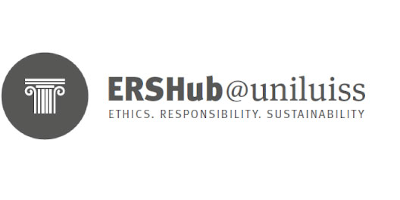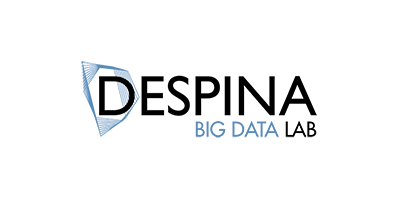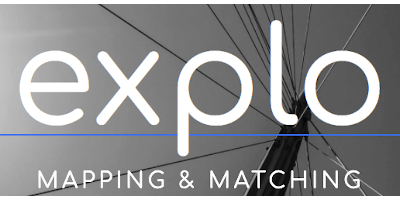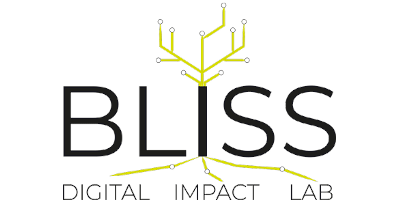
I’m Gaia […] And the ground. And those trees. And that rabbit over there in the grass. And the man you can see through the trees. The whole planet and everything on it is Gaia. We’re all individuals - we’re all separate organisms - but we all share an overall consciousness. The inanimate planet does so least of all, the various forms of life to a varying degree, and human beings most of all - but we all share (Bliss).
Isaac Asimov, Foundation’s Edge, 1982
About
BLISS - Digital Impact Lab develops academic and applied research exploring the manifold impact of the digital transformation on citizens, consumers, firms, organizations, cities and society as a whole.
BLISS’ research focuses on opportunities and risks inherent to digital transformation for both data-intensive organizations as well as organizations that have not undertaken a full transition to the digital economy yet. In this regard we are not only interested in the strategic, organizational and business dimension of the digital transformation, but also we intend to understand its ethical implications, its effects on organizations’ social responsibility, and on environmental sustainability: what the European Foundation for Management Development (EFMD) calls ERS.
BLISS is a platform hosting an open research community. Its core members act as facilitators to build research networks, favoring knowledge sharing and creation of common projects, within the Lab and beyond it, linking to other disciplines, universities, firms, organizations, and institutions, in Italy and abroad.
In this short video, Francesco Rullani - director of BLISS - explains how to generate an inclusive digital change (audio in Italian only).
News and events
Mapping Digital Skills in Cultural and Creative Industries in Italy - A Natural Language Processing Approach
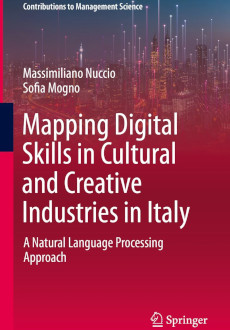
BLISS members Massimiliano Nuccio and Sofia Mogno are the authors of the new book Mapping Digital Skills in Cultural and Creative Industries in Italy - A Natural Language Processing Approach which has just been published in the Contributions to Management Science series for Springer Nature Group.
The book is the first attempt to map the labor demand and supply in the creative and cultural industries (CCI) in Italy, highlighting existing gaps between the two, in terms of knowledge, skills, and competencies (KSC). The results reveal that managerial and digital skills are increasingly vital in the CCI in combination with creative skills, although gaps still exist when it comes to specific soft skills. Moreover, gender results significant in this type of skill-based analysis as there is a remarkable gap between the demand and supply of digital skills when female workers are considered.
The book is innovative also for the methodology adopted as it offers a detailed map of the KSC demanded by creative and cultural professions and supplied by creative and cultural workers in Italy through an original methodology based on Natural Language Processing (NLP) applied to the analysis of curriculum vitae (CVs) and job posts. In particular, the methodology adopted extracts KSC from a sample of CVs and a sample of job posts, which are representative of the labor supply and demand in the CCI in Italy, through NLP algorithms pre-trained on main taxonomies of job qualifications and positions, such as ESCO.
The study eventually indicates a growing (and crucial) symbiosis between creative, digital, and managerial skills and competencies in the Italian CCIs, highlighting an increasing convergence of CCI sub-sectors and the limitations of main top-down industry classifications such as ATECO.
Have a look at the book.
Watch the research presentations [ITA].
30/04/2021 - Jobs and business in the time of algorithms
(Lavoro e impresa al tempo degli algoritmi)
On April 30th 2021 BLISS - Digital Impact Lab and Impresa e Lavoro 4.0 have organised an online seminar to explore the challenges of algorithmic management from an interdisciplinary perspective - see below for the programme.
Technology is changing the way businesses manage their workers and staff. Companies' decisions are increasingly made with the help of non-human agents that are useful to improve productivity, optimizing processes and resources, through the use of data and metrics. Thanks to the progress made in recent years in the field of artificial intelligence, processes such as staff recruitment, the assignment of tasks and shifts, training and performance management could be taken by a non-human decision-maker, in whole or in part. This scenario is already a reality.The seminar stimulated a dialogue where participants tried to understand at first how these (in)fallible tools work and then how and why they are used by companies for a better staff management, what impact they are having on the dynamics of power between companies and which rules discipline them.
| Programme [ITA] | 342 K |
19/03/2021 - Digital turn? Digital innovation in Italy after a year of pandemic
On 19 March at 11.30 Bliss has organised its first webinar to present some of its research projects and discuss the opportunity of digital transformation in the post Covid-19 Italy.
The webinar will be held in Italian.
| Programme [ITA] | 2.54 M |

